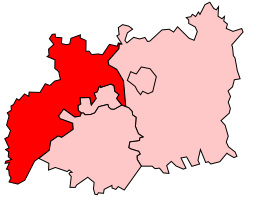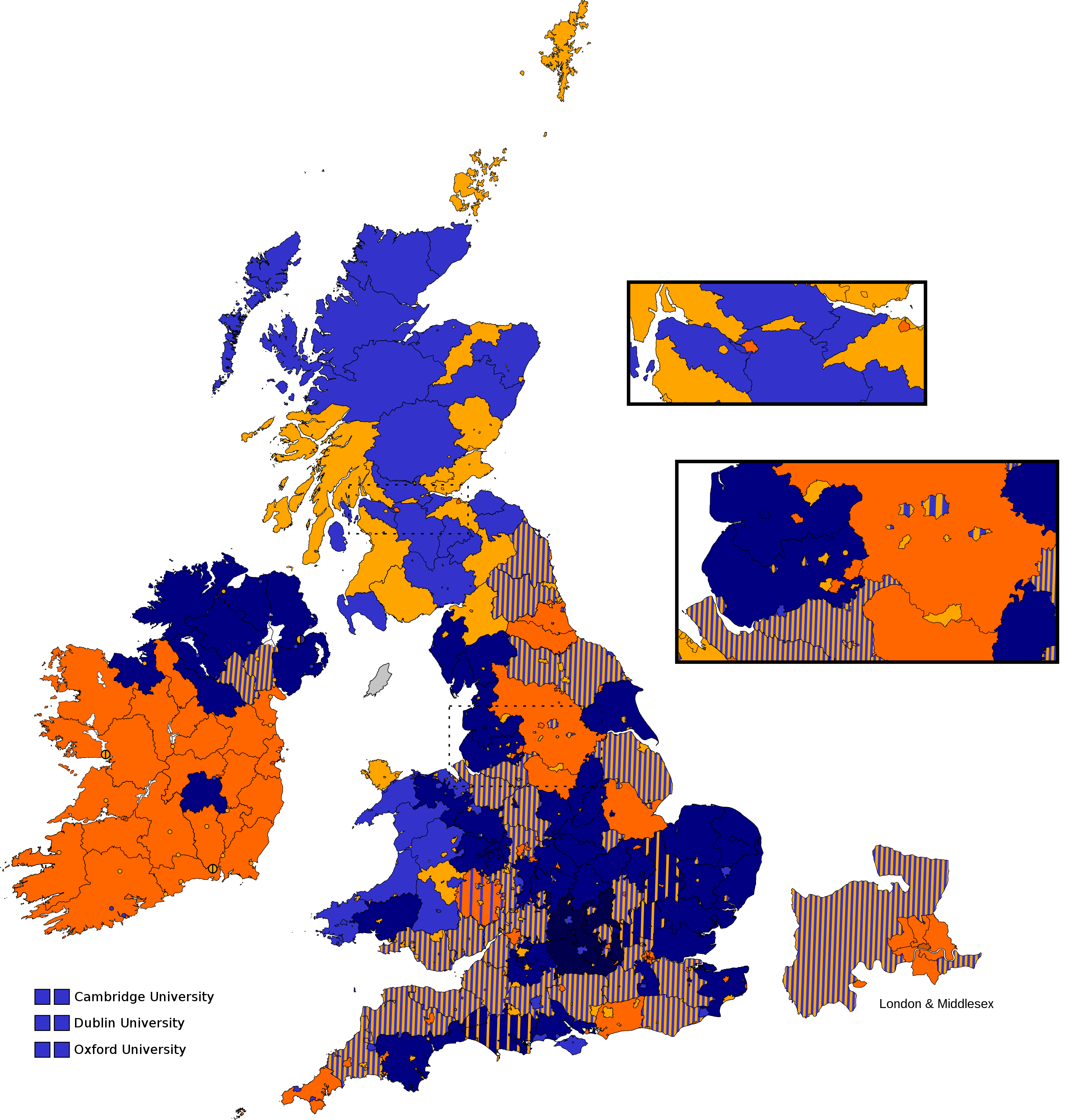| West Gloucestershire | |
|---|---|
| Former county constituency for the House of Commons | |
 West Gloucestershire, showing boundaries used from 1983-1997 | |
| County | Gloucestershire |
| 1950–1997 | |
| Seats | One |
| Created from | Forest of Dean and Stroud [1] |
| Replaced by | Forest of Dean, Tewkesbury |
| 1832–1885 | |
| Seats | Two |
| Type of constituency | County constituency |
| Created from | Gloucestershire |
| Replaced by | Forest of Dean Thornbury |
West Gloucestershire was a parliamentary constituency in Gloucestershire, represented in the House of Commons of the Parliament of the United Kingdom.
Contents
- History
- Boundaries
- 1832 to 1885
- 1950 to 1997
- Members of Parliament
- MPs 1832–1885
- MPs 1950–1997
- Election results
- Election in the 1990s
- Elections in the 1980s
- Elections in the 1970s
- Elections in the 1960s
- Elections in the 1950s
- Elections in the 1880s
- Elections in the 1870s
- Elections in the 1860s
- Elections in the 1850s
- Elections in the 1840s
- Elections in the 1830s
- See also
- Notes and references
- Sources
It was first created by the Great Reform Act for the 1832 general election as a 2-seat constituency (i.e. electing two Members of Parliament). It was abolished for the 1885 general election.
Its namesake, a seat of about half the physical size of the above, took up a north-west side of the Severn estuary similar to the Forest of Dean, and came into being for the 1950 general election. It was abolished for the 1997 general election.
